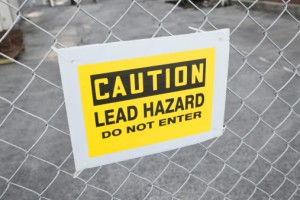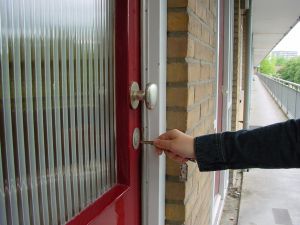Posted by Teresa on May 23, 2012 under Legal | 
 In the wake of the Treyvon Martin shooting earlier this year, rental property owners and managers are rightly concerned about possible liability for actions taken by tenant watch or apartment watch groups on their properties.
In the wake of the Treyvon Martin shooting earlier this year, rental property owners and managers are rightly concerned about possible liability for actions taken by tenant watch or apartment watch groups on their properties.
In a case that made headlines everywhere, 17-year-old Martin was shot and killed by a neighborhood watch leader while visiting his father, who lives in the community. Evidence keeps coming out, but it is unknown what exactly happened that day. The shooter, George Zimmerman, has been charged with second-degree murder.
The circumstances around the shooting have many wondering who is liable for Zimmerman’s actions? Was he sanctioned by the homeowners association in the community? Will the individual homeowners be subjected to a lawsuit and paying damages? And if something like this happened on a rental property, would the owner be liable for a tenant watch group’s actions?
It’s a tough call. In many communities, the police have encouraged citizens to form crime watch, neighborhood watch and tenant watch associations to discourage and report crime in their communities. Many of these groups were formed with the help of the local police.
The inherent risks in sponsoring or advocating for a tenant watch group can be mitigated by including the local police department for guidance and training, as well as by consulting with an attorney who specializes in homeowners and community associations. It’s also important to create a process of recruiting only responsible volunteers who will follow procedures, and screening each potential volunteer.
Establishing procedures for reporting suspicious activity and keeping safe are vital for success and safety, and “do not engage” and “no guns allowed” rules are the most important. In the Martin case, Zimmerman was told to remain in his car, but ignored that directive from the police dispatcher.
Still, a landlord or property manager cannot prevent accidents or lapses in judgment. And in the Martin case, if Zimmerman is found guilty, it’s likely a lawsuit against the community’s homeowner association and property management company will follow.
Could the same thing occur in your duplex, rental home or apartment complex? If you want to avoid liability, then perhaps hiring a private security firm is the better way to go.
Legal disclaimer:
The contents of this article are intended for general information purposes only, and should not be relied upon as a substitute for obtaining legal advice applicable to your situation.
No matter how competitive your rents are, you need to protect your rental property and assets with tenant background checks. Proper tenant screening will ensure you are leasing to the best possible tenants.
Posted by Teresa on May 20, 2012 under Rents and Deposits | 
 Our last post covered ways to incentivize tenants to pay rent online. One reader asked for a list of online rent payment services. So we’ve rounded up a list of popular online rent payment services, along with what makes each one unique.
Our last post covered ways to incentivize tenants to pay rent online. One reader asked for a list of online rent payment services. So we’ve rounded up a list of popular online rent payment services, along with what makes each one unique.
RentPayment – This company says it’s the largest electronic payments processor in the multifamily industry. RentPayment was founded in 1999 and has since acquired a couple of competitors along the way. The company offers credit card and debit card rent payment on their website. Tenants can also pay rent by phone, by using the company’s iPhone app, or by text. Tenants who sign up for RentByText get monthly text reminders when rent is due. They simply reply “Pay,” and their rent is automatically paid via their debit/credit card or through an e-check. Property managers collecting paper checks can use RentPayment’s check scanning services to capture check images digitally, and then deposit them without leaving the office.
RentPayment’s extensive marketing efforts are intended to increase use of its services. They offer magnets, brochures, posters and signs to help spread the word about the advantages of paying rent online through their services.
Pricing: The monthly fee is $9.95 to set up accepting e-check payments through RentPayment, which includes 10 e-check transactions. Funds are deposited into your bank account within one or two business days. Tenants may pay online for free. Additional e-checks are $1.00 each. The fee to accept credit cards is 2.95% of the total amount. Debit cards are 1% of the total amount. Tenants may pay online, by phone, or text for free.
PayLease – PayLease also offers rent payments via e-checks and credit cards, either one-time or recurring. They also offer the means for property managers to make payments into the building owner’s bank account. Another unique feature of PayLease is an integrated online lease application system. Prospective tenants may submit an application and pay the application fee at the same time. Property managers are notified via email that a new application has been submitted.
Tenants may pay rent online or over the phone. Email reminders are also avaialable.
Pricing: PayLease allows rental property owners to pay the transactions fees for online payments, or pass the fee along to tenants. The company also offers a rebate program. The more online payments tenants make, the bigger the rebate. Monthly and/or transaction fees are priced individually.
PayYourRent – PayYourRent was developed by property managers. They offer rent and security deposit payment processing by e-check or credit card, along with additional automatic management services, such as maintenance requests, rental applications, utility connections and check scanning. PayYourRent also offers a payment portal that you can customize with your company’s logo, address and other information.
Pricing is provided upon request. Tenants may pay rent online. PayYourRent offers 24-hour payment processing, so funds are available more quickly.
eRentPayment – eRentPayment allows property managers to collect rent, application fees and security deposits online. Tenants may pay rent online each month, sign up for recurring automatic payments or pay by phone. Managers may also refund security deposits to tenants through the service. Rent payments submitted late are automatically charged a late fee, and managers/owners have the option of blocking partial payments. There are no extra fees to use multiple bank accounts.
eRentPayment offers a solution for tenants without Internet access, as well. Managers may submit a form, signed by the tenant, authorizing an automatic monthly debit from their bank account. Tenants may not alter the payment without submitting another application.
Pricing: Each transaction is $3.00. Property owners and managers may choose to pay the entire transaction fee, split it with the tenant, or have the tenant pay the fee. eRentPayment also offers vacancy listings for no charge.
Posted by Teresa on May 15, 2012 under Landlord and Tenant FAQs, Rents and Deposits | 
 As we reported back in March, some landlords and management companies are forcing tenants to pay rent through online services. Many question whether this is legal or not. The suit filed by the residents of Woodlake Manor Apartments is still moving through the court system, so it’s too soon to tell how that will shake out. But in the meantime, how can you convince tenants to switch over to online rent payment? And is it worth it?
As we reported back in March, some landlords and management companies are forcing tenants to pay rent through online services. Many question whether this is legal or not. The suit filed by the residents of Woodlake Manor Apartments is still moving through the court system, so it’s too soon to tell how that will shake out. But in the meantime, how can you convince tenants to switch over to online rent payment? And is it worth it?
Having rent payments flow automatically into your bank account can be convenient. Collecting checks, posting them in your accounting software, depositing them in the bank (or having your bookkeeper do it) takes time you could be spending on growing your business—or better yet, doing something fun.
Plenty of landlords receive rent payments through a variety of online tools—and neither they nor their tenants would go back to paper checks for anything. It seems most people you know do all their banking and bill paying online. So why not convert your tenants over to online rent payment?
Maybe your tenants won’t or can’t use online services. Perhaps they don’ t all have computers at home. Or they won’t take the time to learn how to use online services. If you are ready to be done with paper checks, maybe it’s time to help them move into the 21st century.
Try incentivizing tenants to transition to online rent payment with these step-by-step ideas:
- Send out a notice to all tenants that you are now offering online rental payment.
- List the benefits, such as avoiding writing and mailing a check, finding a stamp and sending the rent several days in advance of the due date. Online payments are more convenient: rent can be sent electronically on the due date. Tenants can schedule payments ahead of time to cover travel or vacations. Checks can’t get lost in the mail. And, it saves paper!
- Offer a one-time $10 or $25 gift card for tenants who sign up right away for online rent payment.
- You will be notified which tenants choose the online option.
- For those who choose not to use online payment, inform them that beginning with their next lease renewal, you will be requiring them to do so.
- If they still balk, give them the option of paying the entire new rent at renewal (whatever amount you would normally raise the rent) or a lowered amount for paying online.
Landlords may not be able to force all tenants to pay rent online. There will likely be situations where a tenant can’t get to a public library to use a computer, or is not able to understand how to use online banking. And tenants with disabilities are protected under law. Be reasonable and flexible, and collect rent online to the extent that you can.
Protect your rental property and assets through tenant background checks. Proper tenant screening will ensure you are leasing to the best possible tenants.
Posted by Teresa on May 10, 2012 under Legal | 
 Under Title X, or the Residential Lead-Based paint Hazard Reduction Act, landlords are required to disclose any known lead-based paint or hazards in their rental property before signing or renewing a lease with a tenant.
Under Title X, or the Residential Lead-Based paint Hazard Reduction Act, landlords are required to disclose any known lead-based paint or hazards in their rental property before signing or renewing a lease with a tenant.
The law was enacted in 1992 to reduce the health threats of lead-based paint to adults and children. When lead-based paint peels, chips or is sanded, it can lead to lead poisoning, which affects nearly every system in the body. Infants and young children are particularly susceptible. Lead poisoning can lead to behavior problems, impaired growth and reading and learning problems. The Centers for Disease Control (CDC) estimates 250,000 U.S. children ages one through five have elevated blood lead levels.
Adults with lead poisoning often have high blood pressure, memory problems, joint and muscle pain, nerve disorders, and problems during pregnancy.
It’s clear that following the law is important, and the right thing for landlords to do. Landlords are required to tell prospective tenants about the location and condition of lead-based paint in housing built before 1978. They are also required to provide information, such as pamphlets provided by the CDC, about lead paint hazards and how to prevent exposure. Tenants may then make an informed decision about renting or not.
Recently, a landlord in Bridgeport Conn. was found to have rented apartments to families on seven different occasions without making the necessary disclosures. The landlord was charged with:
- Failing to give tenants the required information pamphlets.
- Failing to include proper warning statements in the leases.
- Failing to disclose any known lead-based paint or paint hazards.
- Failing to provide records or reports on previous lead paint enforcement actions or violations.
The landlord is now facing a federal fine of up to $127,000 for his carelessness.
In Indianapolis, Ind., the chipping lead-based paint in a rental home led to serious health issues for a three-year-old. The child came down with a fever, stopped talking, slept constantly and could not eat. A medical exam revealed lead poisoning.
In 2007, the county health department tested the home and found hazardous levels of lead in the doors, door frames, window frames and other areas. Inspectors recommended what needed to be done to bring the home into compliance. The owner of the property at that time was First National Bank of America. The home was tested again in 2009, and a letter was sent to the new owner, a private landlord, outlining that all of the lead hazards had not been corrected.
The tenant started renting the home a year ago, and asserts she knew nothing of the dangers. Doctors told her to vacate the house as soon as possible. She is now in the process of moving, but fears the home will be rented to another unsuspecting tenant. The landlord of this property could face the same charges and fines as the Bridgeport landlord.
Lead poisoning is serious—and so are the laws landlords are required to follow to keep their tenants safe. Don’t make the same mistakes as these two landlords. Protect your tenants and yourself by following Title X to the letter.
Posted by Teresa on May 2, 2012 under Landlord Tips | 
 Rental property owners have the responsibility to provide their tenants with safe and habitable housing. Not only is it the law, but focusing on safety can prevent accidents and other problems that can lead to crime on your rental property, injuries for tenants and visitors, and lawsuits for landlords.
Rental property owners have the responsibility to provide their tenants with safe and habitable housing. Not only is it the law, but focusing on safety can prevent accidents and other problems that can lead to crime on your rental property, injuries for tenants and visitors, and lawsuits for landlords.
Here are some safety guidelines for every landlord and property manager:
- Conduct regular property safety inspections. Check for leaking pipes, broken windows, broken or rotted stair treads, and damaged wood on railings, balusters and decks. Inspect electrical wiring and make sure smoke and CO2 detectors are installed according to building codes and are in operating order.
- Perform preventative maintenance. Fix what needs to be fixed, especially things that cause a safety hazard, like tripping hazards, broken locks or unsafe railings.
- Provide fire extinguishers for each rental unit. Educate tenants on escape routes in case of a fire.
- Take care of broken tree limbs, snow and ice immediately. Clean up piles of fallen leaves, especially on the stairs, where they can cause slipping.
Preventing crime is everyone’s responsibility. To discourage criminal activity, tenants should:
- Keep vehicles locked and avoid leaving items in them in plain sight.
- Never leave valuables in vehicles.
- Observe their surroundings and report any suspicious activity, persons or vehicles.
- Remind tenants that they are responsible for the actions and behavior of all their guests.
- Never copy keys.
- Not allow strangers into a building with controlled access doors. Have them contact the person they are visiting.
Landlords and property managers should:
- Keep parking areas, sidewalks, common areas and stairwells well lit. Ask tenants to inform you of any burned-out lights.
- Provide properly locking doors and windows.
- Trim shrubs and trees around windows.
- Communicate with tenants. Ask about any potential crime or safety problems.
- Regularly inspect properties for signs of potential criminal activity.
- Include a clause in the lease that states tenants will be evicted for dealing, selling or manufacturing drugs on the property, or for allowing such activity by others.
- Screen all prospective tenants. Run a criminal background check on each applicant, so you know that they are who they say they are. Tenant screening will help keep violent criminals or sex offenders out of your rental property, and will help keep everyone safer.
Posted by Teresa on April 28, 2012 under Tenant Credit Checks | 
 Most landlords and property managers screen prospective tenants carefully. But if you’re new to landlording, you may be wondering if it’s necessary or worth the trouble.
Most landlords and property managers screen prospective tenants carefully. But if you’re new to landlording, you may be wondering if it’s necessary or worth the trouble.
The answer is yes! Running credit checks on every lease applicant will give you the peace of mind of knowing your business and livelihood are protected. Here are the basics of tenant credit checks, so you can know what to expect.
- The Fair Credit Reporting Act (FCRA) requires credit reporting agencies and credit report users to follow strict guidelines. To increase accuracy and prevent identity theft, Congress made changes in 2004 to restrict who may access credit information. Rental businesses must comply with rules such as operating a separate, secure business office, holding a business license and submitting to an on-site inspection.
- Landlords who don’t meet these standards may not obtain an individual’s actual credit score. Instead, they may obtain a comprehensive report regarding the applicant’s publicly available information, such as liens, judgments, bankruptcies, social security validation, and criminal records search.
- In addition, landlords must obtain the applicant’s consent to release credit-related information, and the applicant must confirm his or her information (name, SSN, date of birth and address) before the landlord receives the report.
- It’s easy and quick to verify a prospective tenant’s identity and credit worthiness. With E-Renter.com, you’ll receive a background report within an hour Monday through Friday, and same day if ordering on the weekend.
- For property management companies, full tenant credit files, business credit reports and criminal background checks are available immediately online, 24/7.
- Any credit information landlords receive on individuals must be held in the strictest confidence. If credit information is used to reject an applicant, the FCRA requires that he or she be advised in writing.
Using a reliable, experienced tenant screening service is the best way to ensure you are in compliance with all federal and state regulations.
Posted by Teresa on April 24, 2012 under Fair Housing Act | 
 Landlords, how closely do you monitor your property managers? Do you allow them to run your properties however they see fit, or do you run a tighter ship? When you realize that a property owner is often liable for the actions taken by those acting on his or her behalf, you may want to consider keeping a closer eye on your manager.
Landlords, how closely do you monitor your property managers? Do you allow them to run your properties however they see fit, or do you run a tighter ship? When you realize that a property owner is often liable for the actions taken by those acting on his or her behalf, you may want to consider keeping a closer eye on your manager.
For example, one rental property owner was surprised to hear that her long-time property manager had been “protecting the property” by rejecting lease applicants with children. This action is in violation of federal fair housing laws, which prohibit discrimination against applicants on the basis of race, color, national origin, religion, sex, familial status or handicap. Even through the property manager was acting on her own, the building owner still has the responsibility to supervise her staff and prevent any discriminatory actions from taking place.
In a related case, an apartment property manager was found to be turning on the lawn sprinklers whenever children who lived in the complex were playing outside. By his actions, he was creating a hostile environment for the families with children, who were forced to keep the kids inside. If a tenant complained to the local fair housing agency, the landlord could end up as the target of an investigation.
A third example is the property owner who received a letter from a tenant, complaining about the resident manager. The tenant said the male manager was too friendly with her teenage daughter, and was frequently seen near the apartment when the girl was home alone. This behavior, which also creates a hostile environment is often classified as sexual harassment—and is also illegal under the federal Fair Housing Act. Even though no actual inappropriate actions had yet been taken, the daughter’s discomfort is significant enough to warrant action by the property owner.
In many cases, rental property owners are just a complaint away from a discrimination lawsuit—whether or not they are aware of the illegal activities of their property managers. The best bet is to keep a close eye on what’s going on at your properties. Remember, you are ultimately responsible for every decision or action by a property manager that affects your tenants.
Posted by Teresa on April 10, 2012 under Landlord Tips | 
 It seems that the news is full of reports of break-ins at empty houses. Thieves are going after anything they can sell, from brass chandeliers to copper pipes, to aluminum siding.
It seems that the news is full of reports of break-ins at empty houses. Thieves are going after anything they can sell, from brass chandeliers to copper pipes, to aluminum siding.
If you’re a landlord with a vacant rental property, or are remodeling a property to prepare it for leasing, you may be concerned about break-ins.
Here are a ten tips to keep thieves or drug users out of your vacant property:
- Install an alarm system. Some landlords sign contracts with alarm companies, and then adjust the rent to include the monthly service fee. If you have an alarm system, be sure to lock the electric meter box. Otherwise, criminals could turn off the power and enter the house after the back up battery dies. Some systems work only off of batteries and cell networks, so there are no electrical wires to worry about.
- Do-it-yourself surveillance systems with several cameras and motion detection are available for less than $500. They feature Internet and smartphone monitoring and will alert you through email or text of any activity at your property.
- Post signs that the property is under camera surveillance. Whether you use cameras or not, it may encourage thieves to move on to another property and leave yours alone.
- Your first floor is most at risk. Try installing “Protected by Security System” window stickers and exterior signs near the doors that mimic alarm company signs.
- Savvy criminals may not fall for the fake signs, but many would probably not risk it.
- Install sturdy solid wood or steel-wrapped wood entry doors. If the door has a window, install double cylinder deadbolt locks—the type that require a key to open or lock them on both sides. Be sure to check local ordinances, however—for safety reasons. A door that requires a key to open from the inside could be dangerous during a fire or emergency. You can always switch to single cylinder lock after your tenants move in.
- Buy a “FakeTV,” a small device that mimics the changing light and colors of a television. From outside, it looks like a television is on. Just plug it in and set the timer.
- Leave a radio on. Make sure it’s loud enough to hear from exterior doors and windows. You may wish to put it on a timer and set it to switch on for several hours and then switch off late at night.
- Leave some lights on. Buy a timer and have them come on in the evening, and turn off around midnight or so. Install motion-detector floodlights that cover the front, back and sides of the house. Not only will the sudden light startle would-be thieves, it will also warn neighbors that someone is outside your vacant rental property.
- If you know any of the neighbors, ask if they would like to use your driveway for one of their vehicles. They will probably appreciate your efforts to ward off thieves.
Another tip for vacant homes: turn off the water meter at the street, in case thieves do break in and steal pipes, valves or fittings.
No property is 100% theft-proof, but the more deterrents you put in front of criminals, the better chance you’ll have of encouraging them to leave your vacant rental property alone.
Protect your rental property and assets through tenant background checks. Proper tenant screening will ensure you are leasing to the best possible tenants.
Posted by Teresa on April 6, 2012 under Rental Market | 
 The rental market is seeing some new faces. Rental property investors now include people who, a few years back, may not have ever considered becoming landlords. Income tax records show 9.3 million taxpayers who claimed rental income in 2009, which is up from 8.3 million in 2003.
The rental market is seeing some new faces. Rental property investors now include people who, a few years back, may not have ever considered becoming landlords. Income tax records show 9.3 million taxpayers who claimed rental income in 2009, which is up from 8.3 million in 2003.
Several factors are contributing to this trend:
- The rental market is strong, and it keeps growing. More people are choosing to rent rather than buy homes, due to job instability, poor credit, stringent lending standards and insecurity about housing prices.
- Home prices are staying low. Prices have been falling since the bubble burst, and although experts have said we’ve reached the bottom more than once, the numbers indicate otherwise.
- Interest rates are staying low. Near-historic low rates mean taking on a mortgage makes sense for good credit risks.
- Investment returns are lousy lately. U.S. stock funds lost an average of 2.9% in 2011, and safer investments, such as bank CDs are returning rates of 1% or 2%. Investors view real estate as a better opportunity.
- People see tax benefits in owning rental property. According to Reuters, in 2009, those 9.3 million income tax filers claimed about $267 billion in rental income. However, they claimed more than that in depreciation and expenses, for a total loss of $11 billion.
Of course, things can change quickly. Housing prices will eventually recover. The jobs picture will improve at some point. Interest rates will creep back up. And rents will level off. Landlords who enter the business now when demand is high, tenants are plentiful and rents are healthy may find themselves ill equipped to deal with any downturns that will surely come.
Posted by Teresa on April 3, 2012 under Fair Housing Act | 
 The Fair Housing Act (FHA) requires owners of rental properties to make reasonable exceptions in policies and operations to provide equal housing opportunities to persons with disabilities. If you don’t normally allow pets, you may be required to make an exception to accommodate a service or companion animal for any tenants with disabilities.
The Fair Housing Act (FHA) requires owners of rental properties to make reasonable exceptions in policies and operations to provide equal housing opportunities to persons with disabilities. If you don’t normally allow pets, you may be required to make an exception to accommodate a service or companion animal for any tenants with disabilities.
But what if the companion animal poses a threat to your other tenants—or to you? Do you have to accommodate an aggressive animal under the FHA?
Probably not. While you must make reasonable accommodations for tenants with disabilities, they have responsibilities, too. If you request it, tenants with disabilities must provide documentation that the service animal is required from a physician or other healthcare professional. However, as a landlord, you are within your rights to require that every service animal be vaccinated, trained and non-threatening to other residents and the public.
The FHA does not protect tenants who create a nuisance or direct threat to the health and safety of others. If a tenant’s aggressive dog creates a direct threat, then you could be justified in requiring the tenant to take corrective action or remove it.
However, taking action based on speculation about a dog’s breed or appearance is not advisable. Rather, make an objective evaluation based on observation and available data. Does the dog have a history of aggression? Has it ever bitten or harmed anyone? Does it bark excessively? Could putting a muzzle on the dog when it’s outside the rental unit solve the problem?
If you have a tenant with disabilities who has a companion or service animal that is noisy, aggressive or a nuisance, keep the communication open and look for ways to come to a solution.
 In the wake of the Treyvon Martin shooting earlier this year, rental property owners and managers are rightly concerned about possible liability for actions taken by tenant watch or apartment watch groups on their properties.
In the wake of the Treyvon Martin shooting earlier this year, rental property owners and managers are rightly concerned about possible liability for actions taken by tenant watch or apartment watch groups on their properties.








